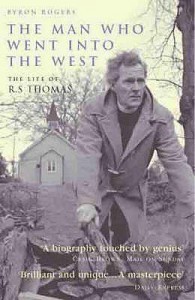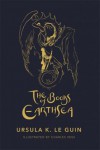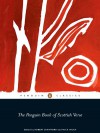Arbie's Unoriginally Titled Book Blog
It's a blog! Mainly of book reviews.
Currently reading
The Man who went into the West, Byron Rogers

I can't remember reading such an out-right entertaining biography before (not that I've read a large number) and certainly never one so funny which is a bit surprising considering the subject, a man many found forbidding, even a little scary. Yet Rogers finds the genuine comedy in the man's life as well as the humour Thomas displayed to the people who could get past the facade to the human underneath.
It seems like Thomas found it very difficult to express his emotions in any way other than through his poetry. This caused many problems, leaving his only child extremely bitter, for instance, and alienating many who he could not engage with on an intellectual front. Yet many of his parishioners found him endlessly patient and considerate in times of trouble, illness or bereavement. And so it goes on, developing a picture of a compicated man, full of contradictions, in search of something he never really found, that he probably couldn't name. Perhaps closest to it when bird watching, alone in a wild space.
Rogers, who knew Thomas, also offers helpful insight into the poetry and the social context of Wales in Thomas's lifetime, necessary to anything but a superficial understanding of the man. I strongly recommend that anyone interested in R.S. Thomas, the man or the poet, read this - it won't be a chore.
 1
1










